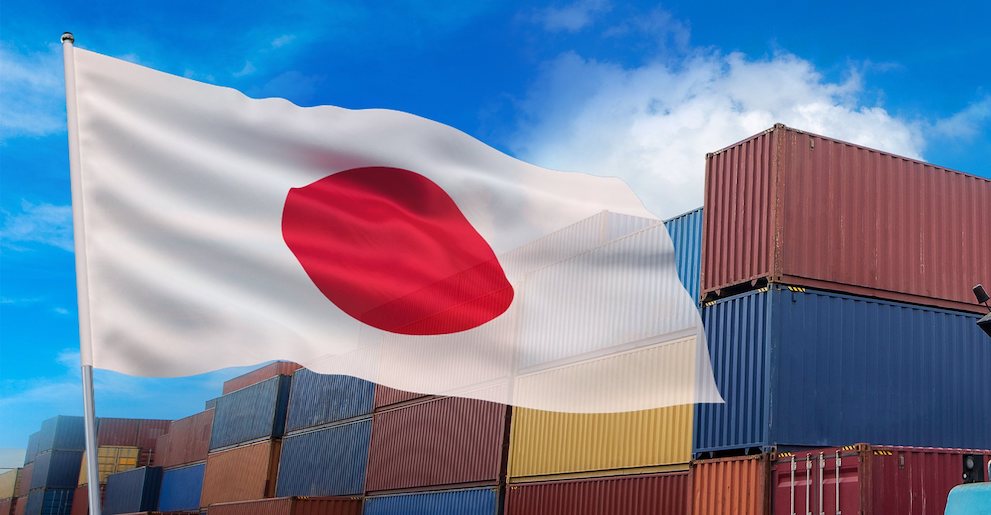
All You Need to Know About Japan Import Duty
Japan has consistently been one of Malaysia's top trading partners, with a trading value standing at MYR 14.9 billion in early 2023.
We have had a partnership agreement in effect since 2006 that significantly reduces or eliminates customs duties for specific imports.
With MITI (Malaysia International Trade and Industry) reaffirming this bilateral relationship and indicating the likelihood of more mutual trade benefits, Japan is one economy in the world that is lucrative for Malaysian's business.
To begin, learn about how import duties and taxes in Japan.
Types of Duties and Taxes
Japan imposes 3 types of duties and taxes - customs duties, consumption tax, and excise tax.
Customs Duties
Japan imposes customs duties on imports valued over JPY 10,000 (approximately MYR 310), with an average rate of 2.5%, except for agricultural products.
Under the influence of the Japan-Malaysia Economic Partnership Agreement (JMEPA), all tariffs on Malaysia's exports have been eliminated. To be eligible for preferential rates, businesses must complete registration with the Ministry of Investment Malaysia (MITI).
Consumption Tax
Excise taxes were abolished after the introduction of consumption tax.
By virtue of this, all goods value above JPY 10,000 (approx. MYR 310) are subjected to 10% of consumption tax, even if they are exempt from customs duties.
Excise Tax
All excise goods such as liquor, tobacco products, and petroleum will be subject to an additional tax, known as excise tax.
Duties and Taxes Calculation
Customs Duties
First, identify the Statistical Code for imports at Japan's Tariff Schedule ( Statistical Code for Import ): Japan Customs.
Then, use the formula below to calculate customs duty on imported goods into Japan:
Customs Duty payable = CIF Value x Customs Duty rate
Example: Plantains value at JPY 500,000 with JPY 5,000 insurance and freight cost
Consumption Tax
To calculate consumption tax, multiply the value of goods by the consumption tax rate, 10%.
For example, you want to import 2000 umbrellas worth JPY 300 each
Duties & Taxes Threshold and Exemption
Japan has a duty threshold of JPY 10,000 (approx. MYR 310).
Any goods above JPY 10,000 are subject to:
1. Customs duties
2. A standard rate of 8% to 10% of consumption tax
Under the jurisdiction of the Malaysia-Japan Economic Partnership Programme, all Malaysian imports are spared from Japan's customs duties.
Nevertheless, imports value above JPY 10,000 remain liable for consumption tax, despite their exemption from customs duties.
Payment Method of Japanese Import Taxes
Paying import duties and taxes on imported goods into Japan differs depending on the shipment method. You can either use an International courier service or a postal service.
1. International Courier Service
Generally, if a package is handled by an international courier service, the company will make an import declaration and pay import duties and taxes on behalf of the consignee. The courier service will transport the package to the consignee along with the bill.
2. Postal Service
If a package is delivered by postal service and the total value of items is less than JPY 200,000, the package will be delivered to an addressee with a “Notice of assessment for International Mail” from the Customs office through Japan Post Co., Ltd. The addressee will receive the item after paying import duties and taxes to a postal worker.
Do I have to pay duty on items shipped to Japan?
Yes. You must pay customs duty when importing goods into Japan if your goods exceed JPY 10,000 (approximately 310 myr)
Following the de minimus rule of Japan, imports exceeding this JPY 10,000 are subject to customs duty, whereas those below it are duty-exempted.
Malaysia and Japan have an economic partnership agreement which allows both countries to enjoy certain benefits by eliminating tariffs on specific agricultural, industrial, forestry and fishery products.
How do I calculate Japan import duty for my items?
To calculate customs duty, first, identify the Statistical Code (also known as HS code) for your imports at Japan's official customs website.
Once you locate the statistical code for your goods, you can know the tariff rates.
Use the below formula to calculate the custom import duty of Japan:
Customs Duty payable = CIF Value x Customs Duty rate
How to pay Japanese customs duties and taxes?
There are 2 ways to pay customs duties and taxes in Japan:
- International courier service like DHL Express
- Postal service. This only applies to parcel value less than JPY 200,000 (approx. MYR 6,215) that ship through postal service.
What are Japan's imports taxes and duties?
Japan enforces 3 types of duties and taxes:
- Customs duties: Japan levies a general rate on imports into Japan. There is no exact amount of rate levied on imports as it could vary based on the goods.
- Consumption tax: A standard 10% or a reduced 8% rate will be levied on imported goods into or manufactured in Japan.
- Excise taxes: It is levied on liquor, tobacco products, and petroleum, and they are calculated based on the quantities of goods imported.
Who pays the Japanese import tax?
Import duties and taxes is typically paid by the receiver. But both the sender or receiver can opt to pay them
If you, as an sender would like to pay the duty and tax on behalf of the receiver, you will request it from your international shipping service provider.
For DHL Express customer, you can do it through MyDHL+ with just one click, switching the shipping mode from export to import.
How much is the VAT if I import to Japan?
Japan imposes a 8%-10% of consumption tax on all imports.
You can calculate consumption tax for your shipment using this formula:
Consumption Tax = (Customs Value + Import Duty) x 10% or 8%



